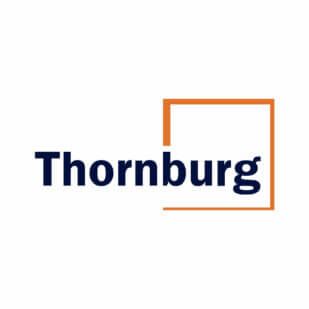
In this first article examining the Korea Discount, we look at why this long-term phenomenon exists and begin exploring why its days may be numbered.
Introduction
The Korean stock market has long encountered a valuation disparity, with lower valuations and inflated risk premiums compared to their global peers. This phenomenon, dubbed the “Korea Discount,” can be attributed to several factors, including corporate governance issues, capital allocation practices, and lack of transparency stemming from long-standing, family-run conglomerates, called Chaebols.
The undervaluation of Korean companies has broad economic implications, including limiting the ability of companies to attract capital and hampering their expansion plans, which can hinder job creation and overall economic growth. Addressing the valuation gap could unlock the potential for more robust economic development in Korea.
In this article, we will explore what we believe are the reasons behind the Korea Discount, the potential benefits of narrowing the valuation gap, why it matters now, and highlight emerging and ongoing market reforms.
Korea’s Price-to-Book and Price-to-Earnings Ratios Significantly Trail Emerging Market and Global Peers
Price-to-Book Ratio:
Source: Bloomberg
Price-to-Equity Ratio:
Source: Bloomberg
Why Is There a Korea Discount: Governance
Chaebol, roughly translated as the Korean word for monopoly, family or plutocracy, is the corporate structure involving family-controlled conglomerates modeled on Japan’s zaibatsu system. Chaebols such as Samsung, Hyundai, SK Group and LG Group are owned and controlled by each conglomerate’s founding family, accounting for most of the country’s innovation and exports. In recent years, Chaebols have expanded beyond the founding families’ original areas of expertise into luxury department stores, hotels, hospitals and even amusement parks. The Chaebols exert significant influence over the Korean economy, and in 2021, the top 10 Chaebols accounted for roughly 60% of the country’s GDP.
Chaebols are opaque and have a high concentration of power within these family-run businesses, challenging transparency and accountability. These have long been a cause of concern among investors. One capital market reform investors look for is diversifying boards at Chaebols. Currently, Koreans hold the vast majority of corporate board seats at Chaebols. In contrast, TSMC in Taiwan and Hitachi in Japan have opened themselves to foreign board members, with about half of their boards composed of foreigners, enhancing transparency and investor confidence and ultimately lifting valuations.
Why Is There a Korea Discount: Capital Allocation
Another factor contributing to the Korea Discount is the capital allocation practices of Korean companies. Historically, low dividend payouts and a lack of share cancellations through buybacks have raised apprehensions among investors. Moreover, Korean companies have been slow to cancel shares through buyback programs, which could improve shareholder returns through reduced supply.
Since the pandemic, Korean dividends have yielded about 2%, in line with Japan and higher than the U.S. Korean companies have also witnessed a 140% increase in share cancellations from 2021 to 2023, suggesting a shift towards more shareholder-friendly practices. However, South Korea’s dividend payout ratio is still among the lowest of its emerging markets peers. Encouraging companies to improve their capital allocation strategies through increasing dividend payouts and actively managing their share count could help close the Korea Discount.
Korea is known for its technological advancements and innovative industries such as semiconductors, electronics, and automobiles. However, the Korea discount can hinder the ability of Korean companies to compete globally and attract the necessary capital for research and development. Addressing the valuation disparity would give Korean companies better access to capital, enabling them to invest in innovation and maintain their competitive edge.
Why Is There a Korea Discount: Lower Foreign Investor Participation
The Korea discount has implications for foreign direct investment (FDI) in the country. Through the years, foreign investor participation in the Korean stock market has been relatively low compared to other global markets. The undervaluation of Korean companies may deter foreign investors from allocating capital to Korea, leading to missed opportunities for economic growth and technology transfer. Closing the valuation gap would make Korean companies more attractive to foreign investors, potentially leading to increased FDI inflows. Increasing foreign investor interest and participation could enhance market efficiency, attract additional investment capital into the South Korean economy, further productivity gains and economic growth, and create a virtuous circle.
Now that we have looked at the factors behind the discount, our second article will examine what steps are being taken to address this long-running phenomenon and what opportunities it may present for investors.
Discover more about:
More Insights

Key Principles of the ETF Execution Protocol

Finding Opportunity Amid Imbalance: 2026 Market Outlook

Thornburg Income Builder Opportunities Trust Announces Distribution

Will the Real Kevin Warsh Please Stand Up?

FOMC Update: Fed Holds Rates Steady After Three Successive Cuts


